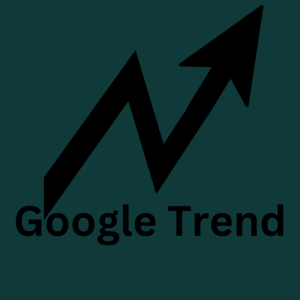"Unlock Your Business Potential: The Role of SEO in Our Digital Marketing Agency's Success Strategy"
By improving a website's exposure in search engine results, search engine optimization (SEO) increases the amount of organic (non-paid) traffic it receives. It entails improving off-page components like social network presence and backlinks as well as on-page components like content, keywords, and meta tags. Technical SEO concentrates on backend enhancements such as HTTPS security, mobile friendliness, and site speed. In addition, user experience (UX) is prioritized by SEO to guarantee quick loading speeds and simple navigation. SEO helps websites rank higher in search results, increasing the likelihood that users looking for pertinent information or services will find them. This is achieved by the website adhering to search engine algorithms.
TYPES OF SEO
Off Page SEO:
Off-page SEO is a crucial aspect of digital marketing for agencies, focusing on actions outside their website to improve search engine rankings. Key strategies include building high-quality backlinks, leveraging social media marketing, and engaging in influencer collaborations. By acquiring links from authoritative sites, a digital marketing agency enhances its credibility and visibility. Additionally, participating in industry forums, guest blogging, and fostering community interactions contribute to a robust off-page SEO profile. These efforts collectively boost the agency’s online presence, drive organic traffic, and establish it as a trusted authority in the competitive digital marketing landscape.

On Page SEO:
On-page SEO is crucial for a digital marketing agency to enhance its website's visibility and ranking on search engines. It involves optimizing individual web pages by strategically placing keywords, crafting engaging meta descriptions, and ensuring proper header tags. High-quality content that addresses client needs, combined with relevant internal links, improves user experience and search engine ranking. Additionally, optimizing images with alt tags and ensuring mobile-friendliness and fast loading times are essential. By focusing on these elements, a digital marketing agency can attract more organic traffic, leading to increased client inquiries and business growth.

Technical SEO:
A vital component of digital marketing is technical SEO, which guarantees that a website's architecture is search engine optimized. The goals of a technical SEO digital marketing business are to increase a website's indexability, crawlability, speed, and mobile friendliness. To find and fix problems like broken links, duplicate content, and ineffective site architecture, they carry out thorough audits. They improve the functionality and user experience of the website by using structured data and making sure that connections are safe (HTTPS). Higher search engine ranks, more organic traffic, and improved overall visibility in search engine results pages (SERPs) are the results of this.

TECHNIQUES OF SEO



Black Hat SEO
White Hat SEO
Gray Hat SEO
The black hat Keyword stuffing, cloaking, and link manipulation are examples of dishonest, unethical SEO techniques that are used to artificially raise a website's search engine results quickly. These tactics frequently result in penalties or bans from search engines.
White hat When search engine optimization (SEO) is used to raise a website's search engine ranks, it means using human-centered, ethical optimization tactics including creating high-quality content, using keywords wisely, and following search engine criteria.
Hat in gray Utilizing strategies that are in between unethical (black hat) and ethical (white hat) approaches, such as slightly over-optimized content or moderately manipulative link building, might be risky even though they don't precisely violate search engine criteria.
Tools For SEO


Ahrefs
Semrush
Digital marketers and website owners utilize Ahrefs, a potent SEO tool, extensively to check ranking positions, investigate competition strategies, evaluate backlinks, and undertake keyword research in order to enhance online exposure and search engine performance.
SEMrush is a feature-rich SEO tool that helps optimize websites for search engines, gives capabilities for keyword research, backlink analysis, and performance tracking, and offers insights into competitors' techniques.


